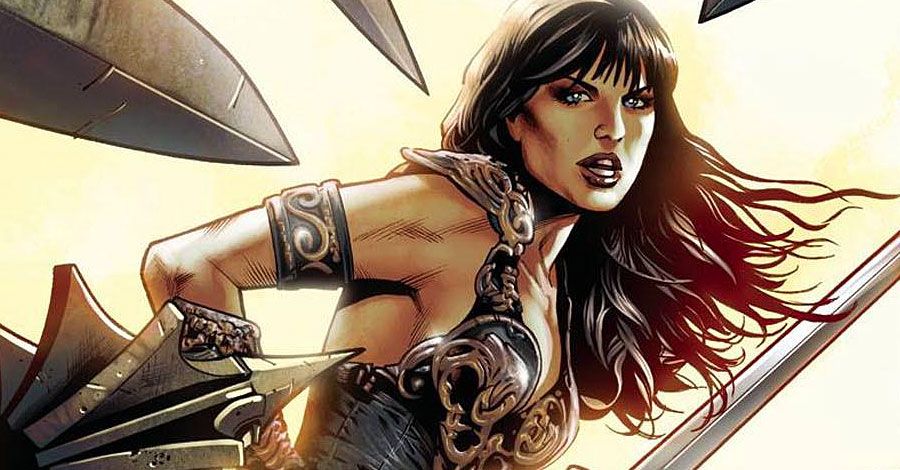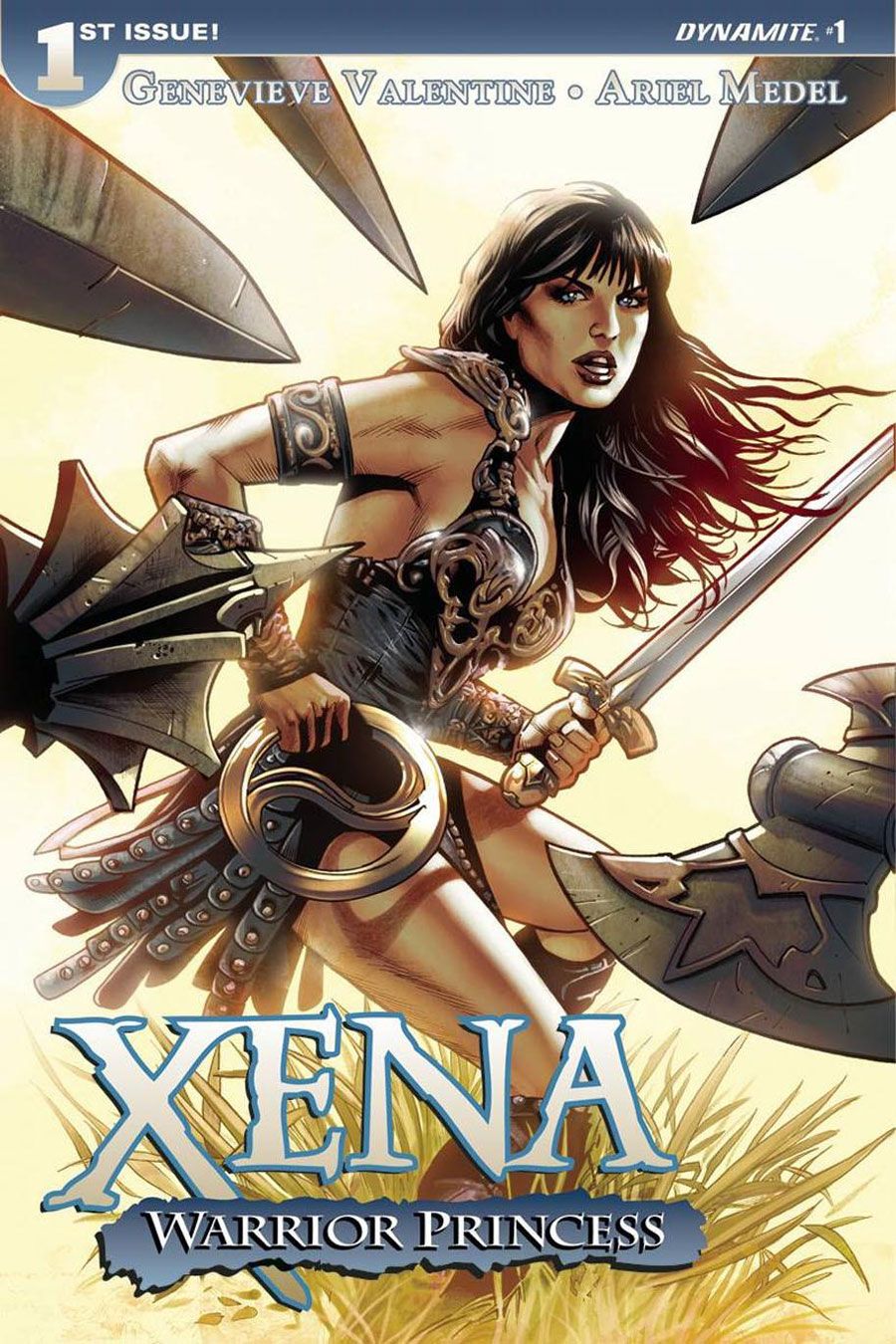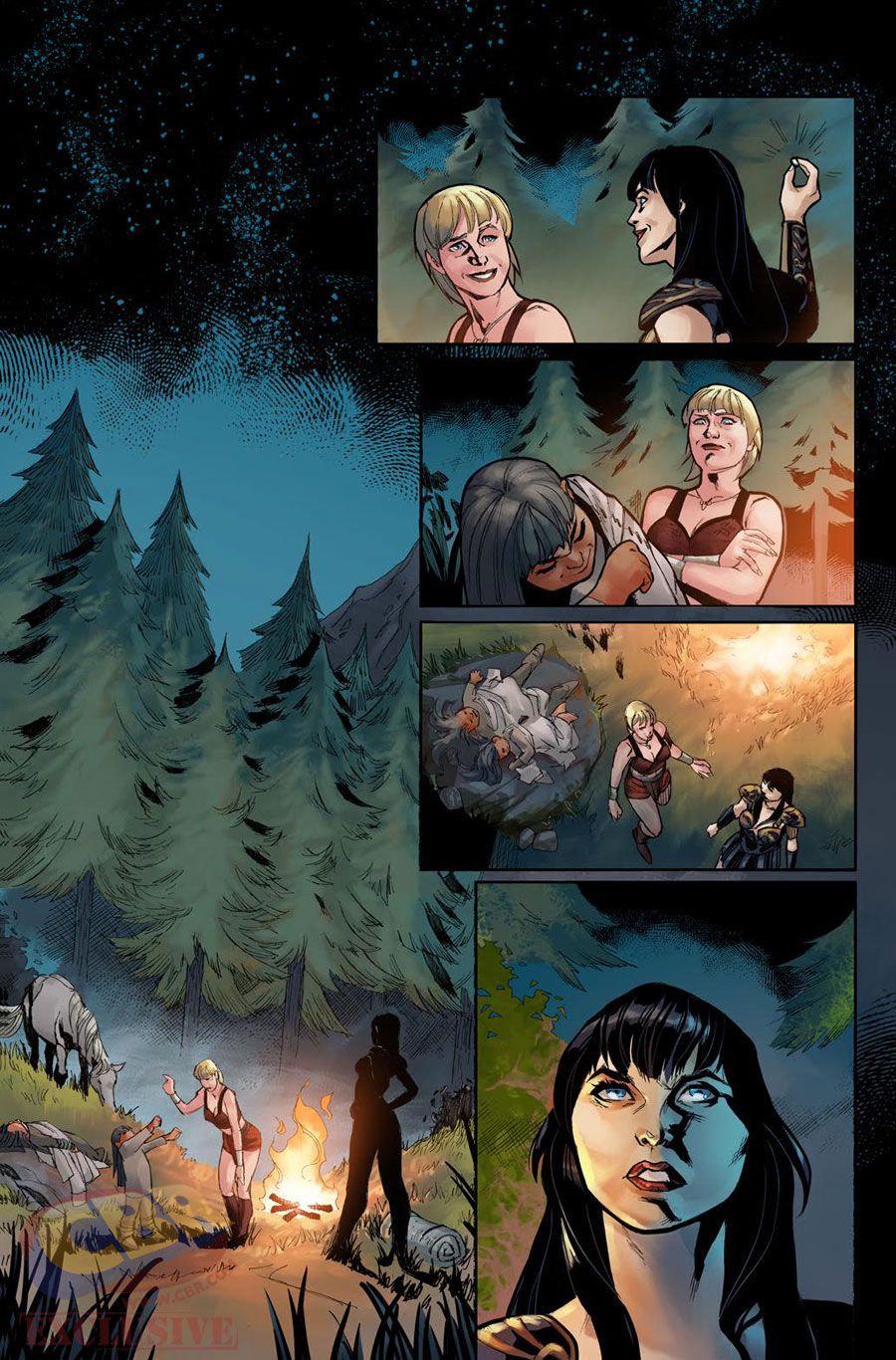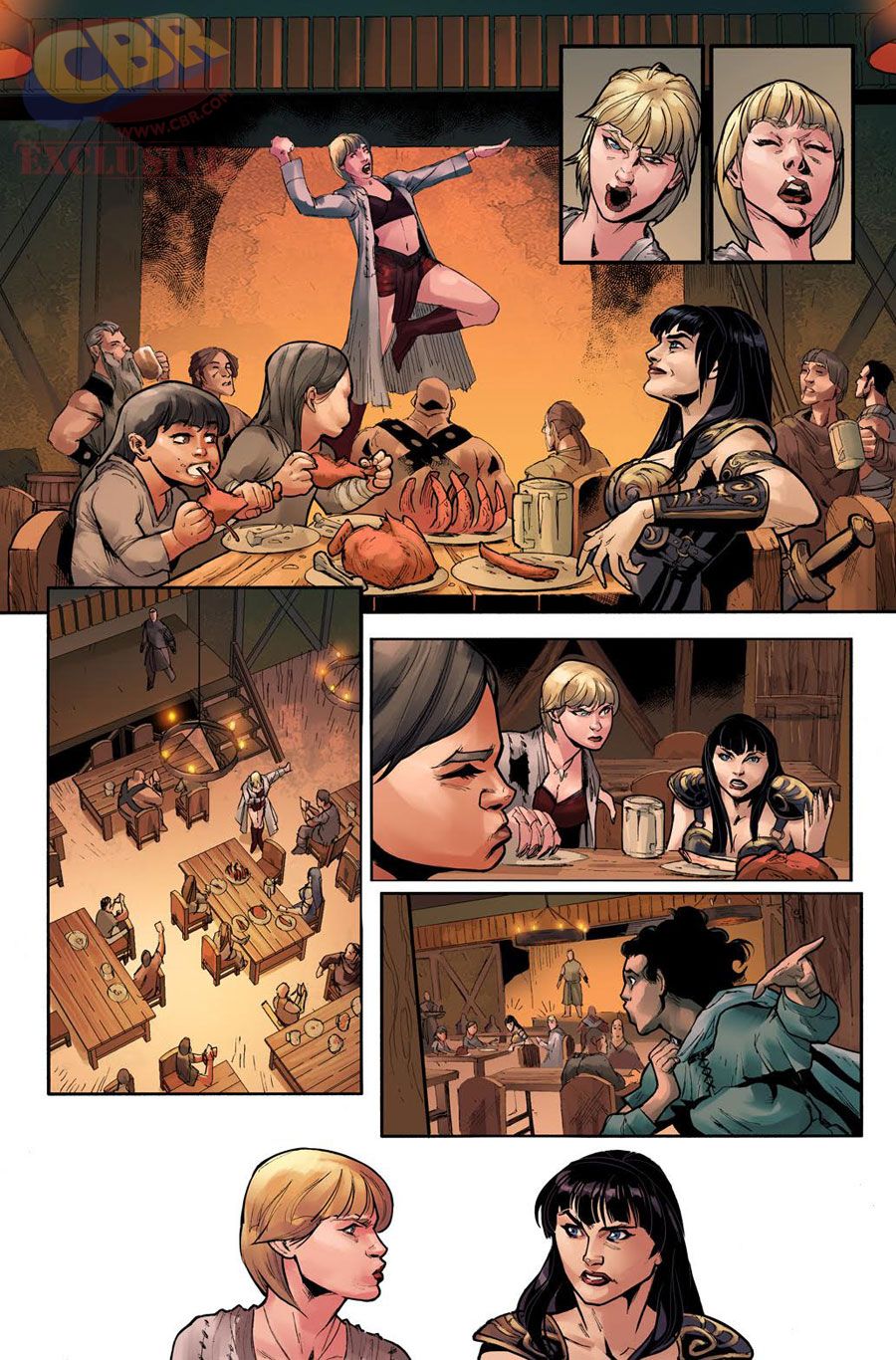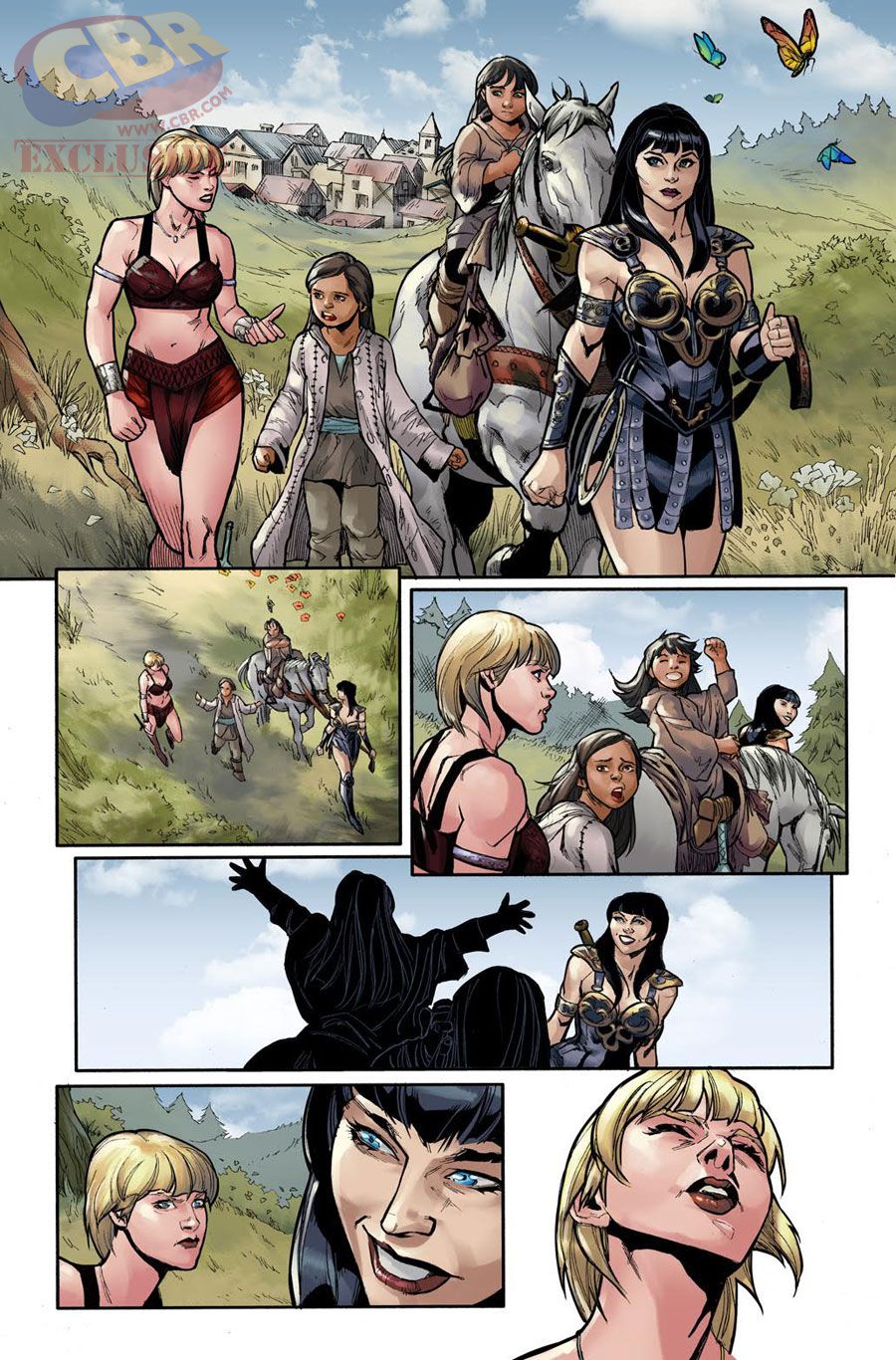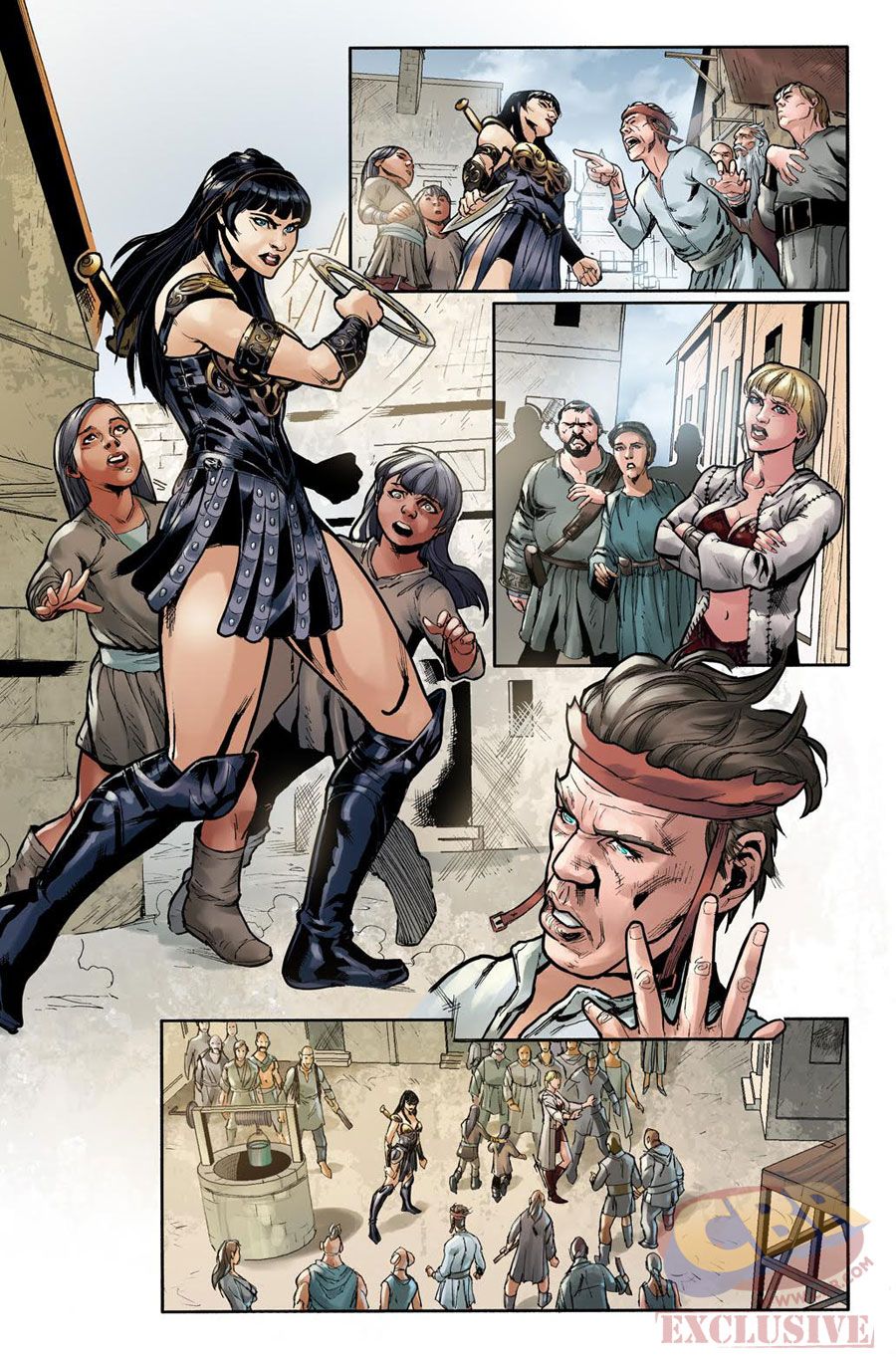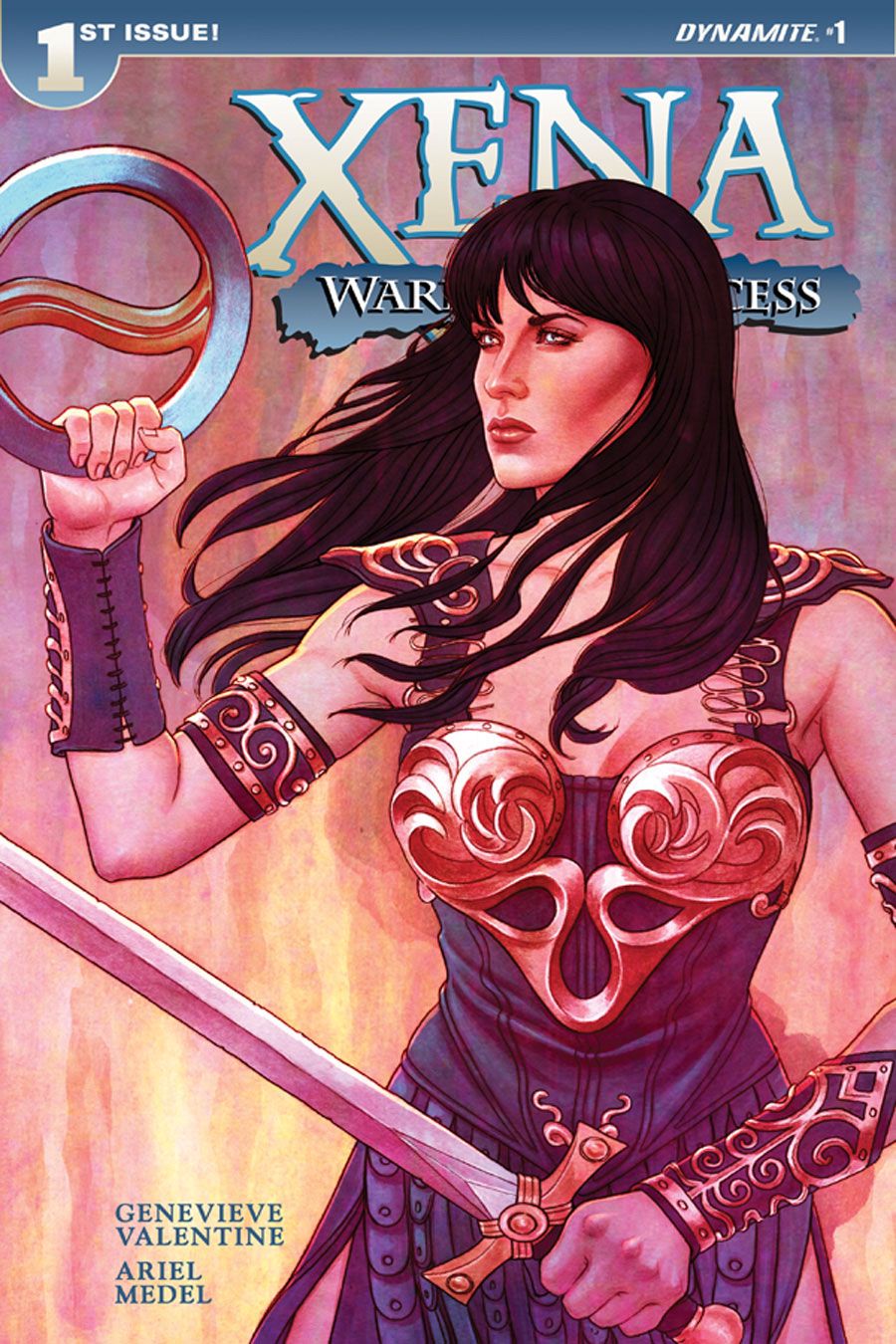When talking about TV shows perfect for adapting into comics, "Xena: Warrior Princess" undeniably fits the bill. Big and bold, campy and classic, the series took its general concept as presented in the title and spun it out into a long-running, fan-favorite, mythological romp. Funny, action-packed and emotional when necessary, every episode combined fight scenes and character drama into a high-powered mix set against a supernatural backdrop which was immediately engaging and interesting.
RELATED: Lawless Comments on "Xena" Reboot, Thinks Hollywood is Scared of "Wonder Woman"
So -- no pressure on writer Genevieve Valentine, then! Later this year, Valentine is launching a new "Xena: Warrior Princess" ongoing with artist Ariel Medel for Dynamite Publishing. The series is set in the immediate wake of the show's "Twilight of the Gods" storyline, which killed off most of the Greek Pantheon and pushed Xena and Gabrielle 25 years into the future. It's an unexpected, unpredictable time period to launch the characters into, but as Valentine tells CBR News, that's also what makes it perfect.
CBR News: In general, how do you like your Xena? Do you prefer her when she's serious, camp, funny, scary, bloodthirsty, peaceful? What, to you, marks the best of the character and the series?
Genevieve Valentine: Honestly, I think the best of the character is in the contrast of all those elements. One of my favorite things about the show is how the divide between who she was and who she is keeps widening. We see her at the beginning of this journey to make amends, and get to watch her work to become a better person.
I'll admit that the contrast can be intense at times; some of the super-campy leaps are clearly best enjoyed without being analyzed too closely alongside, say, her being crucified. But having her pulpier elements working in tandem with what's essentially a revenge story in reverse (and the threat that she could yet backslide) makes her a really engaging character with room for a lot of different narratives. I think the show, at its best, knew how to balance that so that you laughed with her, worried for her, and hoped for her.
There are so many iconic elements to Xena. Is it hard to hold back from going into full "Xena-mode" each issue, or are you all-in for some non-stop air-flipping, chakram-throwing, yip-yipping warrior princessing every month?
It's so hard! Twenty pages is an incredibly tight restriction when you're trying to tell an overarching story with episodic elements, and you also want to make sure that the original series flavor is always going to come through. The good news is that there's so much to choose from. The bad news is, you will never be able to sneak an extra page past anybody.
Given that my arc deals with some of the more serious side of Xena's world (and for reasons of precious, precious real estate on the page), there might be slightly less air-flipping than occurred during her televised adventures, but there's definitely plenty of Easter eggs for fans of the show!
For people not familiar with "Twilight of the Gods," where are the characters as issue #1 begins? Why pick this period in Xena's life for the series to start?
I have always been fascinated by this time in the series; a 25-year time jump and then killing off half the Greek pantheon is the kind of thing that just begs for more story. And after Eve is settled, so much about this time in this series is left on sort of a precarious note -- the waffling good intentions of Augustus Caesar, what it means to have a world without the gods the people had relied on -- that it seemed a natural place to begin a story that can explore what all of this really means to Gabrielle, to Xena, and to a world that's changed so much in the wake of it.
What kind of mindset are Xena and Gabrielle in, themselves? Things have started changing hugely for them -- how are they handling the new world they've wandered into?
I actually think that, as the story opens, Gabrielle is in a better position than Xena. Xena is damn good at solving the problem in front of her, but things like killing half a dozen gods is the kind of thing that makes you want to go back to the small time. When she finds herself being drawn into Rome's shenanigans again, you see her grimly accepting the situation but also projecting a little, trying to protect Gabrielle and reflexively protecting herself.
Gabrielle, of course, has been through plenty by now, and isn't really in need of that kind of protection the way she has been in the past. She's always been the one unafraid to look into the future, which should position her perfectly to tackle this brave new world -- in theory.
Am I also right in thinking this was around the time Gabrielle was having prophetic visions? Will those play a role in the series?
What a timely and unrelated question! You are right, and they might.
Many of the supporting characters are out of the picture at this point in the timeline, so is your plan to focus mainly on Xena and Gabrielle as the leads here?
Xena and Gabrielle are definitely the focus of the series (they'd have to be!), but the beauty of Xena is how much the past still plays a part in the present. A lot of what happened before the time jump comes back to visit them in some unexpected ways, and they find themselves coming up against characters old and new who are straddling that divide between past and future.
What do you think defines their relationship? What makes them such interesting foils for one another?
I think they have one of the most remarkable feedback loops on television; we really see them having an effect on one another over these years of the series, moving from a sense of mentor and protege to true partners, but I think that goes way beyond just fighting abilities and strategic decisions. We see them informing one another's personalities in really meaningful ways.
Xena talks relatively early on about how Gabrielle understands hate but has never given in, and says, "You don't know how much I love... that." It tells us something about Xena's fears about herself, and about Gabrielle -- and sets her up to be plenty tempted by evil later, of course -- but it also shows us that Xena herself is already changing.
Opening herself up emotionally to someone and hoping for the best is something that comes easily to Gabrielle, but you see Xena struggling to risk it. At its best, the show did some really amazing emotional work, letting their relationship build and letting both Xena and Gabrielle change over time -- and it's not always positive, but it all means something, which matters more.
It's a romantic relationship, right? Even if unspoken. We can all agree on that?
I mean, we've all seen the show; I don't think there's a lot left to the imagination. What an inseparable pair of gal pals.
The time of the Greek Gods is ending, with the Roman Empire now taking over. Will we see Caesar take up the role of antagonist for the characters? What kinds of threats will Xena be up against through this new, unpredictable period in time?
Julius Caesar was well established as a villain in his time on the show; Octavius was always a lot more morally gray. The difference between Octavius and Augustus is pronounced, and the show sort of positions him as an example of how youthful idealism gets corrupted by power. It's a nice metaphor of the state of Rome as our story starts; it's an Empire trying to "civilize" the world, but of course that's a fancy justification for invading and colonizing places where they're not welcome.
It's a beast with a thousand heads, and the more savvy Rome gets, the more Xena and Gabrielle have to worry about.
Are there any familiar faces you might possibly want to bring in over time, if just for a quick cameo?
Yes, and I wish I could tell you about them! Let's just say this story firmly believes in the power of the flashback.
How are you finding working with artist Ariel Medel? What does the art style bring to the series, for you?
He's great. His action sequences are gorgeous -- which is lucky, since most of my fight scenes are a list of character notes (how do they feeeeell about this fight?) and then a giant Hail Mary pass -- and he's really captured the playfulness of so much of Xena and Gabrielle's interactions; the first issue has some amazing glimpses of Bard Gabrielle in her element.
He's really captured Xena and Gabrielle together -- those silent looks, that lived-in body language. It's a style I think carries over a lot about the show while still having a sense of the rhythm of the page.
Are you enjoying the chance to bring out your inner Sam Raimi? His style as director/producer was such an influence on the show -- have you looked to consciously mimic that for the comic?
We've definitely tried to maintain a sense of energy -- whether in fight scenes or the facial expressions during conversations -- and I love a good "dun dun dun" moment almost as much as Raimi does, so that works well (though I try to ration myself, we only have so many pages). Humor works very differently on the page and on the screen, so some of his amazing moments of camp are untouchable.
One of the things that's probably going to read differently are the fight scenes. One of the benefits of comics is that your world has no budget, and everybody's exactly as skilled as they need to be, so you can flood the page with attackers and never worry about the light running out on you.
Finally, I wanted to ask you as a critic, as well as a comics writer: what do you think it is about the character which has left such a lasting impression for audiences?
I think it's actually that same sense of energy -- that fearlessness -- and that it's a show that cares equally deeply about its characters and the pulp adventures that inspired it, and overall, it turned out to be kind of a magical combination.
"Xena: Warrior Princess" #1 arrives April 13.

